My first field visit after joining Avni as a Business Analyst
October 04, 2023 by Salil Arora
During my field expedition in Gujarat, I had the privilege of witnessing the grassroots activities where Avni is making a significant impact. Sewa Rural and Jashoda Narottam Public Charity Trust (JNPCT), both long-standing NGOs dedicated to serving the tribal communities of Gujarat, have harnessed the power of Avni to enhance their work. Join me on this journey as we delve into the tangible results and transformative potential of Avni in the heart of Gujarat's tribal regions.
I joined Samanvay and Avni team as a Business Analyst 4 months back. My role is that of a bridge between the programs team of community based organisations and the development team at Avni to ensure that the requirements are clearly understood and the solution using Avni is satisfactorily delivered. For this, an important part is to understand the programs properly.
So I decided to do a field visit to some of the oldest users of Avni - Sewa rural and JNPCT working in tribal areas of Gujarat. On the 3rd of September 2023, I ventured from the bustling streets of New Delhi to the heart of Gujarat's tribal regions.
Sewa Rural
SEWA Rural (Society for Education, Welfare and Action–Rural) is a non-profit organisation involved in health and development activities in rural tribal areas in the Jhagadia block in southern Gujarat since 1980. On 4th, I reached Sewa rural head-office in Jhadadia with a pit-stop in Vadodara. Sewa rural team gave us an overview of the organisation and various initiatives they are running. We had the opportunity of going into depth of 2 different programs where Avni is being used, through discussions and seeing actual operations on ground interacting with users and community.
In Jhagadia, being associated with Sewa Rural comes with a unique privilege - a warm and heartfelt welcome from the community. This level of trust and acceptance is a testament to Sewa Rural's unwavering commitment to the region, nurtured over many years. The people here recognize that the Sewa Rural team is tirelessly dedicated to their betterment, and this trust forms the bedrock of their impactful work.
Adolescent Awareness Program and Avni
Sewa Rural started an Adolescent Health programme in 2012 with the aim to reduce anaemia, regulate menstrual hygiene management (MHM) reproductive health awareness, and reduce school dropouts and drug addiction in Jhagadia block. Every year 3500 to 5000 adolescents are tracked at regular intervals. Dr Shobha Ben and team shared the achievements of the project so far.
Avni is being used in this programme since 2018. They seamlessly capture the health records of Adolescents directly on the Avni app and conduct follow-up visits according to each child's specific health indicators. The app generates suggestions based on the data entered, making their work more efficient and empowering them with confidence in providing guidance. Many calculations that were once done manually are now auto-calculated within the app, simplifying their tasks.
What left me truly astounded was the revelation that the Government of Gujarat had wholeheartedly embraced Sewa Rural's adolescent program in Techo, an app already in use there. Learnings from Avni’s rollout has helped faster setup of a robust module in techo. Dr. Shobha Ben also mentioned that they have been recommending other NGOs to adopt Avni, emphasizing how this transition has significantly benefited their operations.
During our on-ground observations, we identified a potential challenge—higher data volumes affecting the performance of custom dashboards. We suggested we will discuss it with the team and get back with a solution.
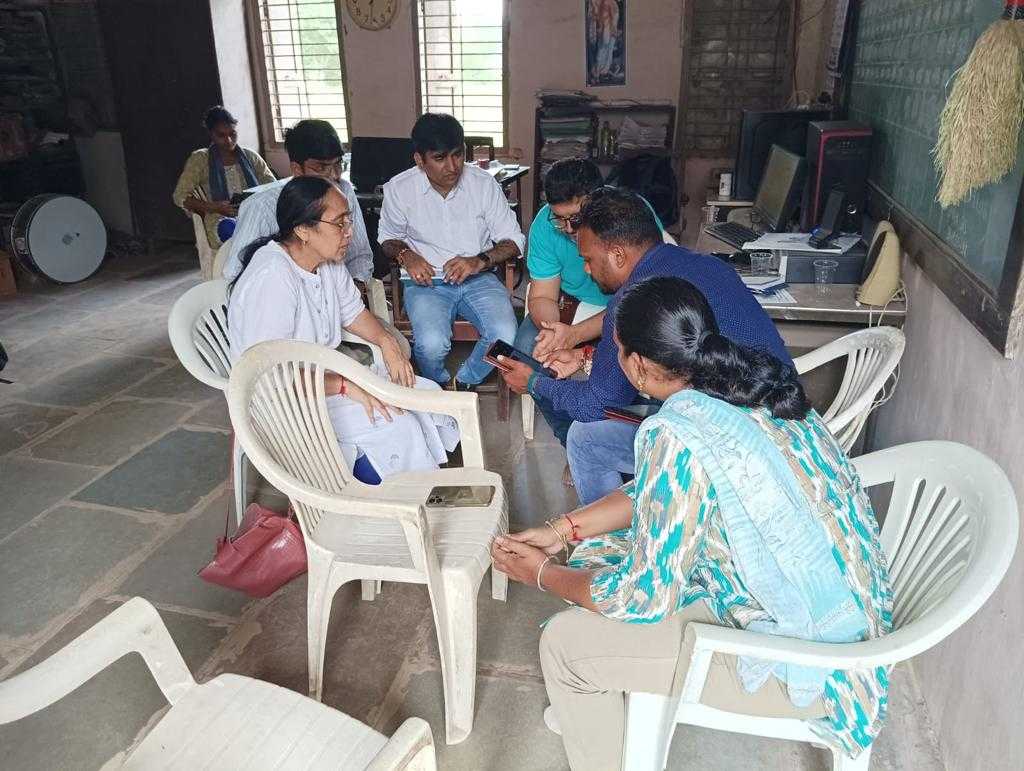
Furthermore, we discussed form-level solutions aimed at optimizing field staff's time and improving data accuracy. For instance, if a Sickle test has been conducted in the past, there's no need to ask for it in future encounters, minimizing redundancy and making better use of valuable field staff resources. This collaborative effort to refine and enhance the process demonstrated the collective commitment to making healthcare delivery in these tribal regions more efficient and effective.
SNCU Follow up Project
We then delved into another noteworthy project at Sewa Rural, led by Dr. Dhiren Bhai. After being discharged from SNCU (sick newborn care unit), these newborns have greater mortality than other newborns and need more care at their homes. Since April 2018, a trained field supervisors goes to homes in Valia, Jhagadia, Netrang, and Dediyapada talukas to follow up on these newborn babies. They continue to monitor the health indicators of these children until they reach 5 years of age. They are using Avni since 2020.
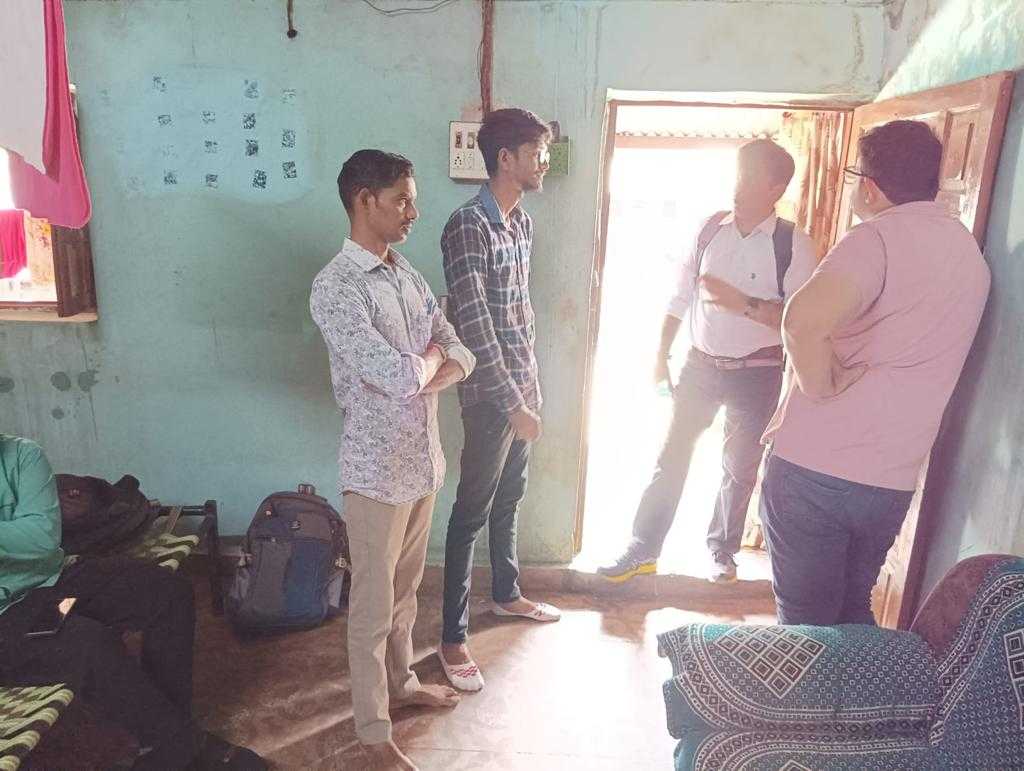
During our visit, we identified some issues on the ground and suggested changes, which are slated to be resolved in a phased manner.
Sewa Rural's journey towards becoming paperless through the adoption of Avni is truly remarkable. Witnessing the dedication and satisfaction level of the Sewa Rural staff in their work left a lasting impression on me.
The Jashoda Narottam Public Charity Trust (JNPCT)
On the second half of September 5th, we bid farewell to Jhagadia and started our journey to Dharampur. We reached Dharampur at around 7:00 PM and met with Mr. Arjun from the Jashoda Narottam Public Charity Trust (JNPCT) team.
On September 6th, our journey led us to the Jashoda Narottam Public Charity Trust (JNPCT) office, where we arrived at 9:00 AM. Mahendar Bhai graciously opened a window into their work by sharing their annual reports—a practice designed to foster a culture of learning and knowledge-sharing among local NGOs. What filled my heart with inspiration was their recognition of the Avni team's invaluable contribution, a testament to the remarkable impact achieved through the adoption of the Avni app.
JNPCT currently operates in 4 Primary Health Centers (PHCs) of Valsad District, spanning 62 villages, and serving a population of approximately 1 lakh. They have a dedicated team of around 100 permanent staff members complemented by 250 part-time workers. What sets them apart is their commitment to local engagement—most of their staff members hail from the very communities they serve. This unique approach allows them to intimately understand the challenges at hand and devise solutions tailored to the local context, thereby enhancing their ability to effect positive change.
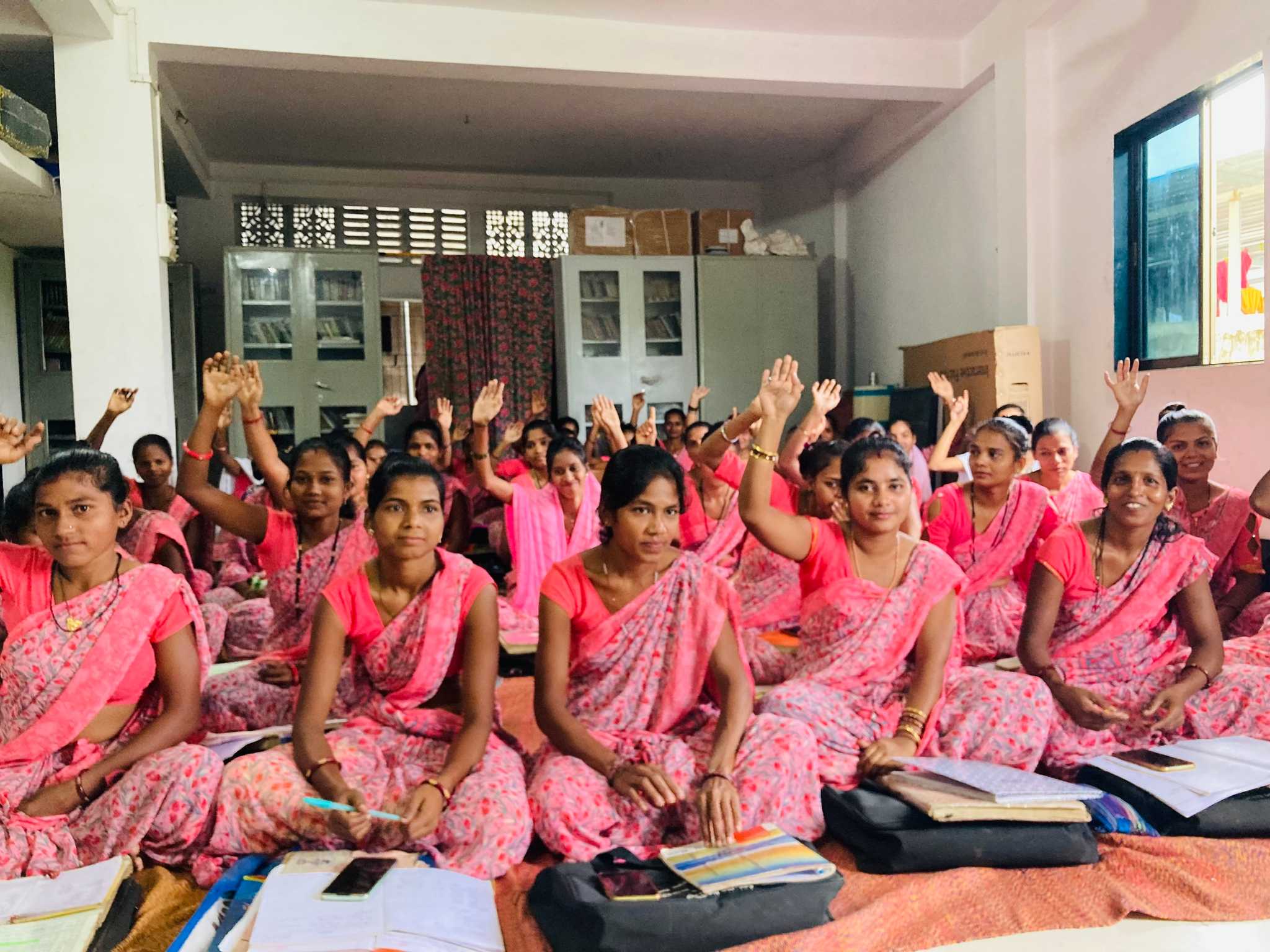
The above image encapsulates the spirit of empowerment. It features Arogya Saheli proudly raising their hands—a gesture signifying their newfound skill in using smartphones. They acquired this knowledge through training provided by the JNPCT team to capture data on the Avni app. This dedication to empowering local individuals wherever opportunities arise speaks volumes about JNPCT's mission.
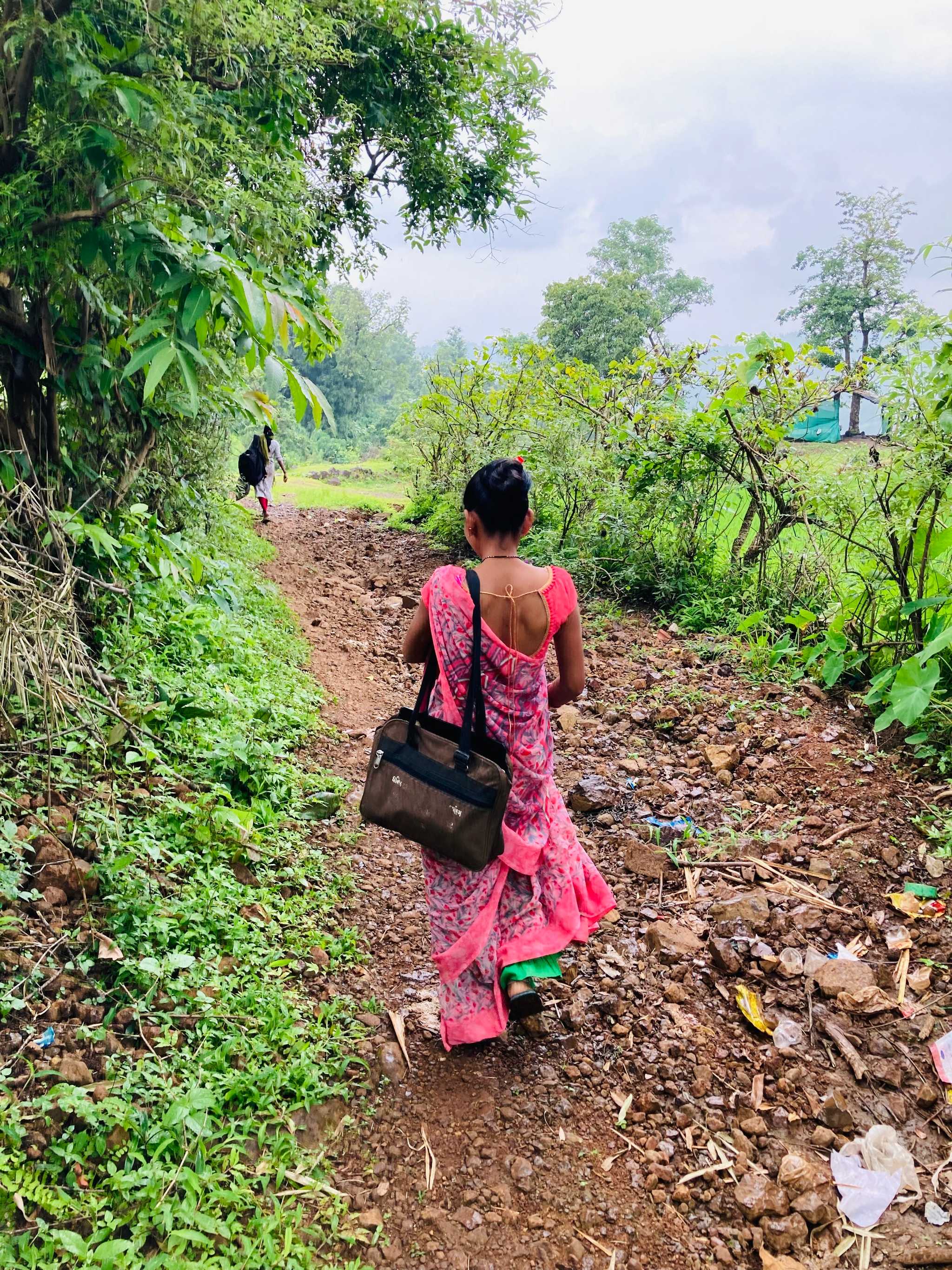
Our day commenced with a journey to a remote tribal area: Tiskari Jungle and Sildha village, which comes under Sildha PHC in Valsad district. This region is near to the border between Maharashtra and Gujarat and is inhabited by Kokna, Warle, and Korcha tribal populations.
The level of trust that these tribal communities repose in the JNPCT team is akin to considering them as family. This trust is not just logical but for a good reason. Health indicators in these tribal areas have witnessed remarkable improvements across the board. Since 2018, over 3,000 children have successfully recovered from severe acute malnutrition (SAM). Today, due to JNPCT's unwavering dedication, the number of children currently experiencing SAM has dwindled to just 31. JNPCT has consistently gone the extra mile to provide improved health facilities to these tribal populations.
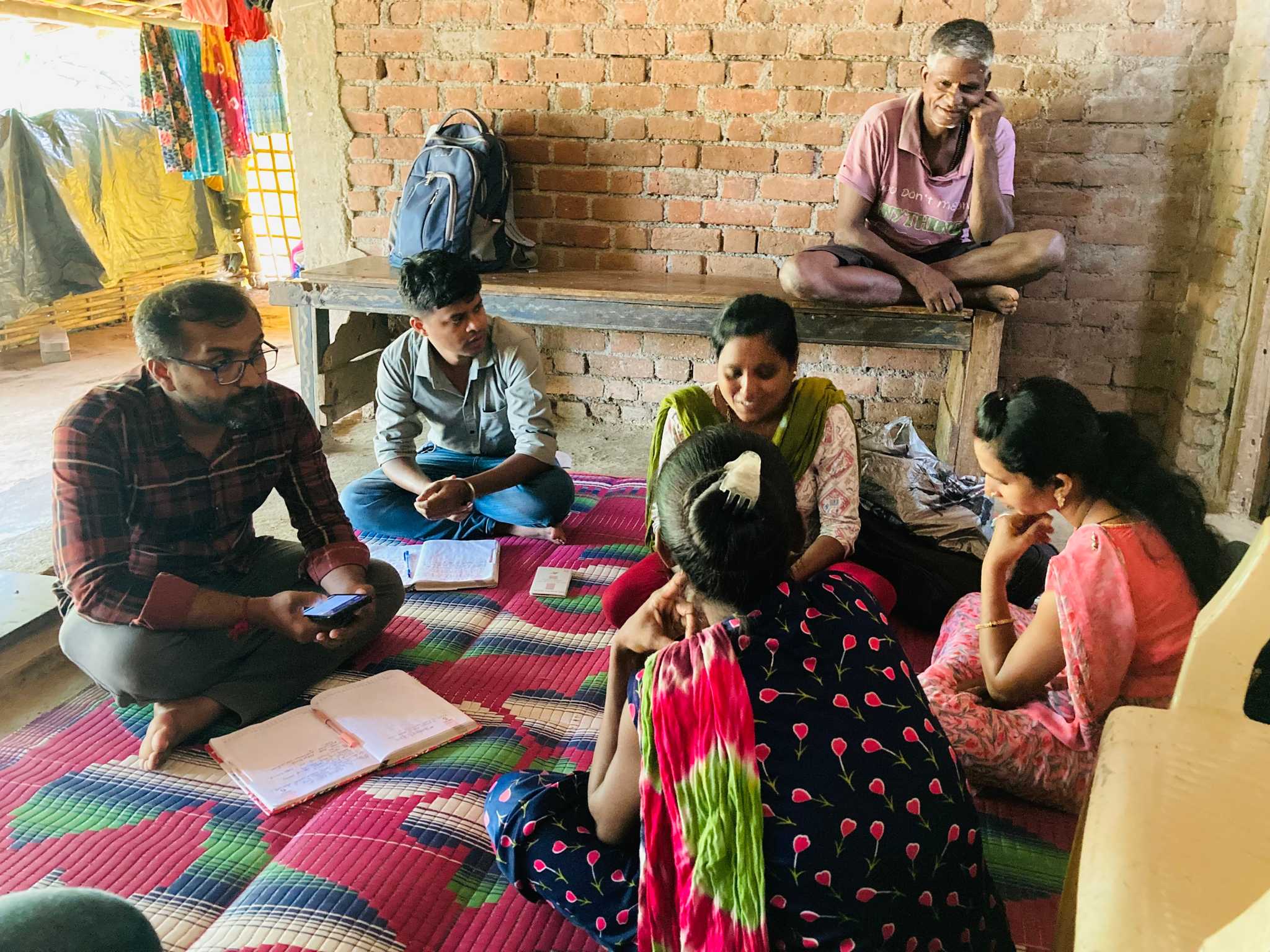
Yet, one challenge still looms large: family planning. During our visit, we met a young woman, just 24 years old, who had recently given birth to her fifth child in August 2023. Conversations with the JNPCT team revealed that while progress has been made, there was a time when both the mother-in-law and daughter-in-law would be pregnant simultaneously, with the mother-in-law on her 9th or 10th pregnancy. This serves as a poignant reminder of the complex challenges that persist in these remote tribal communities.
Moreover, during our discussions with the JNPCT team, they shared their plans to transition their Adolescent program also from traditional paper-based methods to Avni. We engaged in initial discussions, outlining the primary requirements for this transition, and we await further details to collaboratively drive this initiative forward.
In conclusion, my field visit has been an enriching journey that has not only deepened my understanding of the transformative power of technology but also reaffirmed the significance of collaborative efforts in improving healthcare delivery. Witnessing Avni in action, from empowering local health workers to enhancing the lives of tribal communities, has been truly inspiring. As I return from this immersive experience, I am excited to bring back these valuable insights and lessons to further enhance my role as a Business Analyst. I look forward to continued collaboration with organizations like Sewa Rural and JNPCT and the opportunity to contribute to the ongoing success of Avni in making a positive impact on the lives of those who need it most.